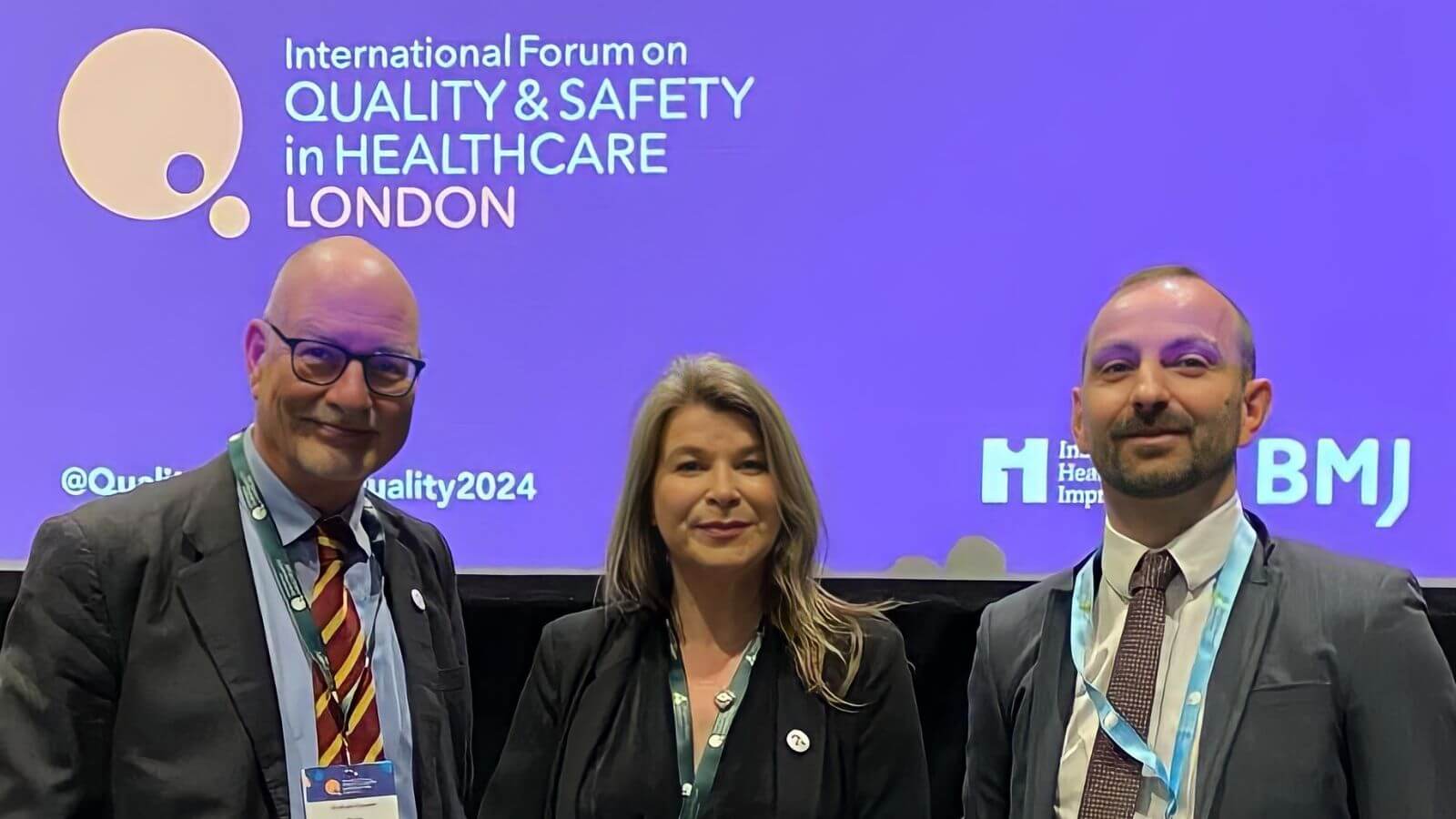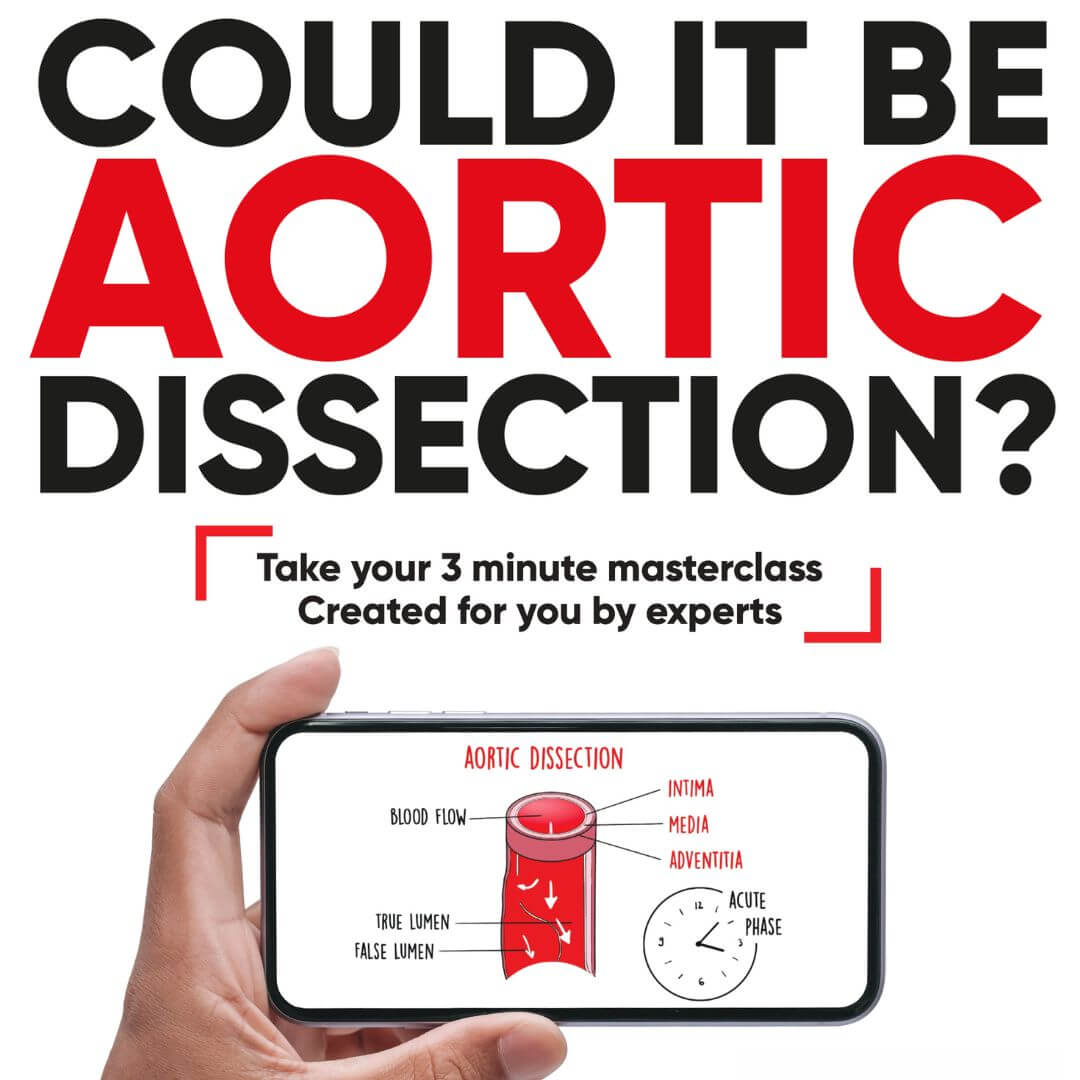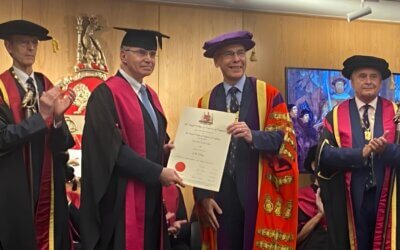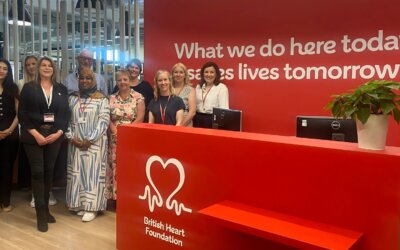At the 2024 International Forum on Quality and Safety in Healthcare, Hull University Teaching Hospitals NHS Trust and The Aortic Dissection Charitable Trust co-presented a session titled Taking a Human Factors Approach When Learning from Serious Incidents. This session was chaired by Maarten van der Laan of the University Medical Centre Groningen and highlighted significant advancements in patient safety in the diagnosis of acute aortic dissection (AAD).
Addressing the Challenge of Misdiagnosis
Austin Smithies opened the session by detailing the tragic misdiagnosis of a young man in Hull’s Emergency Department, which resulted in his untimely death. He highlighted the gravity of the issue, and how he became aware of the charity’s great work at a Royal College of Emergency Medicine AD study day. This introduction set the stage for a deep examination of systemic failures in emergency AAD diagnostics.
To say that accidents are due to human failing is like saying falls are due to gravity. It is true but it doesn’t help us prevent them.
Trevor Asher Kletz OBE
Great session on using human factors to improve patient safety, in an aortic dissection example. #PSIRF in action! @QiWhipps @WeImproveBH pic.twitter.com/V00y6TTyIU
— Victoria Rainey (@vicstar141) April 11, 2024
Rethinking Patient Safety
Catherine Fowler shared her deeply personal experience with AAD, focusing on the emotional and systemic challenges prevalent within the healthcare system in the UK and Ireland. The charity champions three main areas: Education, Policy Change, and Research. These pillars have significantly contributed to shaping the award-winning project with Hull’s direction, equipping medical professionals with better tools and knowledge, and advocating for systemic changes to prevent similar errors.
Implementing a Human Factors Approach
The quality improvement project at the heart of this session demonstrated the application of human factors in emergency medicine. By breaking down barriers, streamlining communication, and standardising diagnostic pathways, the project aimed to create a more efficient and safer environment for AAD diagnosis.
Results and Impact
The project used an adaptive model of Just Culture, which moves away from blaming individuals for systemic failures. It emphasised learning from successful practices (Safety 2 Approach) as much as from failures. During the study year, there were no missed cases of AD, and the time taken from initial assessment to CT scan was significantly reduced from 114 minutes to 35 minutes.

Understanding Just Culture
Just Culture is a pivotal concept within the NHS, aimed at balancing the need for an open and accountable healthcare system with the inherent complexity of medical care where staff are encouraged to engage in the process without fear of unfair blame. It focuses on learning from incidents to improve future safety of patients and care quality, rather than attributing fault and punishment to individuals.
In practice, Just Culture in the NHS seeks to understand the reasons behind an error or near miss. It distinguishes between genuine mistakes, where individuals should not be blamed but rather supported, and incidents involving reckless behaviour or violations of protocols, where accountability is necessary. This approach fosters an environment where staff feel safe to report errors and discuss them openly, which is essential for organisational learning and improvement.
The ethos of Just Culture is about promoting trust, learning, and improvement across all levels of the healthcare system, ensuring that everyone — from front-line clinicians to management — is involved in a collective effort to enhance the safety and effectiveness of patient care.
Understanding Safety 2 Approach
The Safety 2 Approach represents a shift in the NHS’s perspective on healthcare safety, focusing not only on what goes wrong but also on what goes right. Unlike traditional safety models that primarily aim to minimise harm by preventing errors and adverse events, Safety 2 builds on the understanding that high levels of safety and effectiveness arise from doing things right. This approach emphasises the importance of understanding everyday work practices and the conditions under which correct actions and positive outcomes occur. By analysing successful processes and why they work well, the NHS can design systems that are robust and resilient, promoting a proactive culture of continuous improvement. The Safety 2 Approach encourages a more holistic view of safety management, where the learnings from success are as valued as the lessons drawn from failures, thus contributing to an overall safer healthcare environment.
Collaborative Initiative
The collaborative efforts discussed in this session at this global forum showcased the impact of integrating human factors into healthcare practices. The successful reduction in diagnostic delays and the zero-miss rate in the study period exemplify the potential of collaborative, systemic approaches to enhance patient safety. This model serves as a valuable framework for other healthcare settings grappling with similar challenges, highlighting the importance of systemic thinking and collaboration in medical practice.




